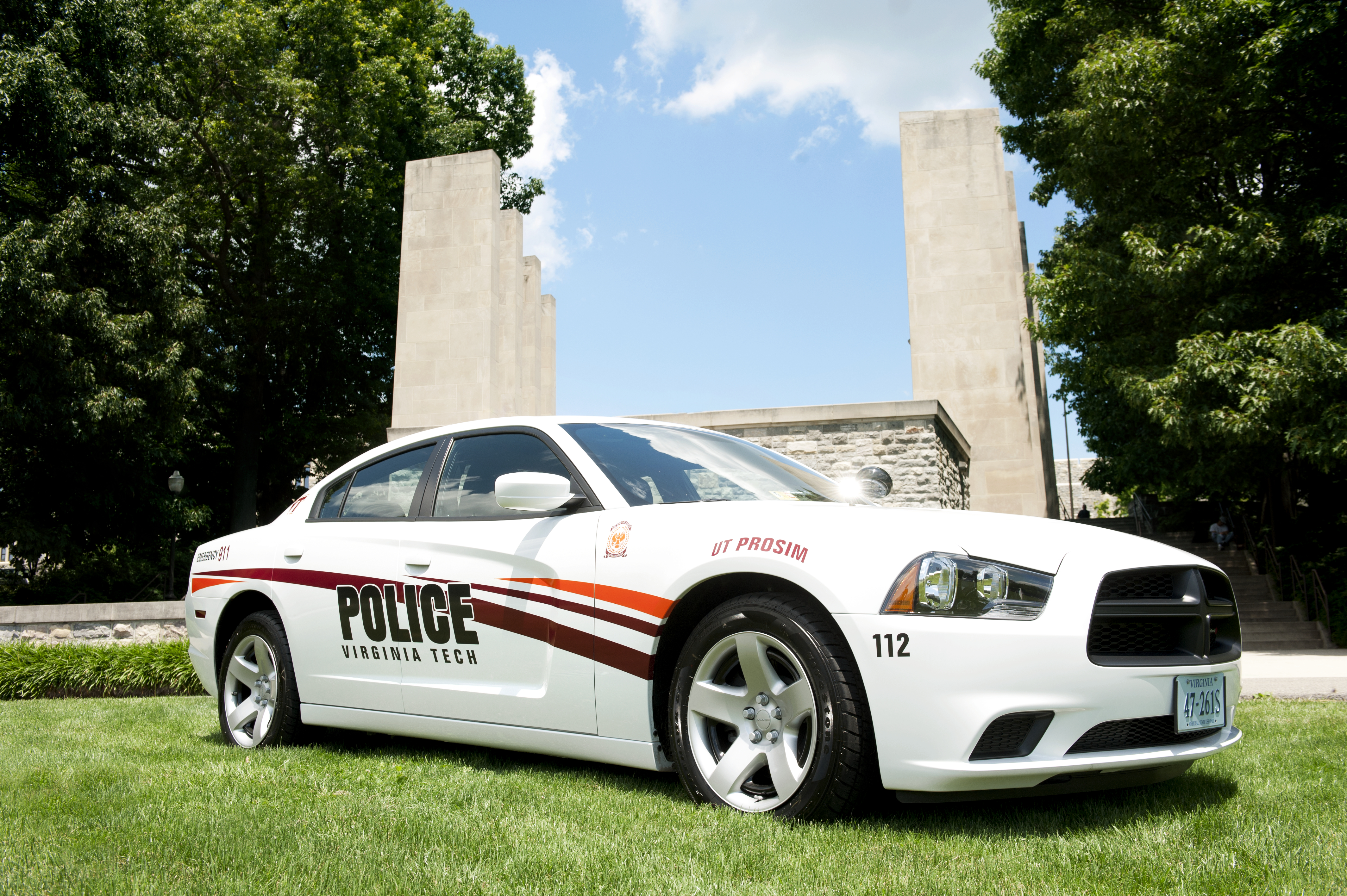Faculty and staff attend police academy and learn about life as a police officer

Thirty-five faculty and staff members will learn what it’s like to be a police officer during a mini-police academy hosted this summer by the Virginia Tech Police Department.
The academy is May 20 - July 8 with classes meeting every Tuesday for three hours. Through a mix of classroom and hands-on activities students will learn about safety and law enforcement procedures and tactics.
“The academy helps people get to know the police department and learn what officers do on a daily basis,” said Officer Daniel Guilliams with the Virginia Tech Police Department’s Community Outreach Unit. Guilliams coordinates the academy, which uses several members of the police department to teach different topics.
One of the most popular sessions lets students drive a police car with lights and sirens through an obstacle course.Also, students will investigate a mock crime scene and present their findings to the class.
Other sessions include officer safety, violence and crime prevention, terrorism awareness, tactical response, K-9 operations, weapon safety, and cybercrime.
Graduates are awarded a certificate with awards given for top student performances during hands-on sessions.
The 2014 summer academy is full, but there are additional opportunities for those wishing to attend future police academies. Faculty and staff are welcome to attend the fall and spring semester academies, but not on university time. Faculty and staff can attend the summer academy on university time, with supervisor approval. Another summer session is planned for 2015.
Visit the police academy web page to learn more.
Dedicated to its motto, Ut Prosim (That I May Serve), Virginia Tech takes a hands-on, engaging approach to education, preparing scholars to be leaders in their fields and communities. As the commonwealth’s most comprehensive university and its leading research institution, Virginia Tech offers 240 undergraduate and graduate degree programs to more than 31,000 students and manages a research portfolio of $513 million. The university fulfills its land-grant mission of transforming knowledge to practice through technological leadership and by fueling economic growth and job creation locally, regionally, and across Virginia.



